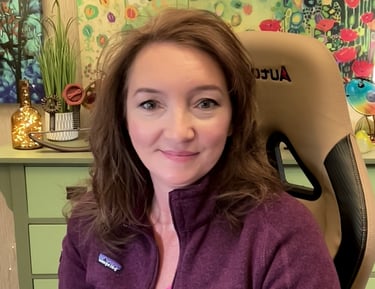The Power of Combining Counseling with Behavior Analysis
Janet Thomas LPC LBA NCC
8/23/20251 min read


The Power of Combining Counseling with Behavior Analysis
When a Licensed Professional Counselor (LPC) is also a Licensed Behavior Analyst (LBA), clients gain access to a rare and powerful combination: the emotional depth of counseling and the structured, scientific approach of behavior analysis. This dual expertise allows therapy to move beyond conversation alone, offering both insight and practical strategies for change. Together, these skills strengthen the counseling process in three important ways:
1. Insight Meets Action
Counseling gives clients a safe space to explore emotions, relationships, and life experiences. It helps uncover the whybehind struggles and fosters meaningful self-understanding. Behavior analysis builds on this foundation by identifying patterns, triggers, and reinforcement cycles that keep unhelpful behaviors in place. With that knowledge, the counselor can introduce clear, step-by-step strategies for change. Clients don’t just learn about their challenges—they gain tools and practices they can apply immediately in everyday life.
2. Evidence-Based Strategies
Behavior analysis is rooted in research, data, and measurable outcomes. By systematically tracking progress, clients and counselors can see what is working and adjust what isn’t. Proven reinforcement systems and practical interventions provide accountability and structure. This evidence-based approach makes therapy especially effective for concerns like anxiety, ADHD, trauma, and stress management, because clients can celebrate real progress along the way—not just hope for it.
3. Long-Term Growth
Traditional counseling supports emotional healing and insight, while behavior analysis ensures new habits are not only formed but also sustained. This integration creates resilience, helping clients internalize positive coping skills and translate them into lasting lifestyle changes. The result is growth that continues outside the therapy room, where it matters most—in relationships, work, and daily life.
Together, LPC and LBA training create a counseling experience that is both compassionate and results-driven—helping clients not only feel better in the moment but build the skills to thrive long term.
Janet's Therapy
Thomas Behavioral Health
Contact
+1 786-755-1863
© 2024. All rights reserved.


